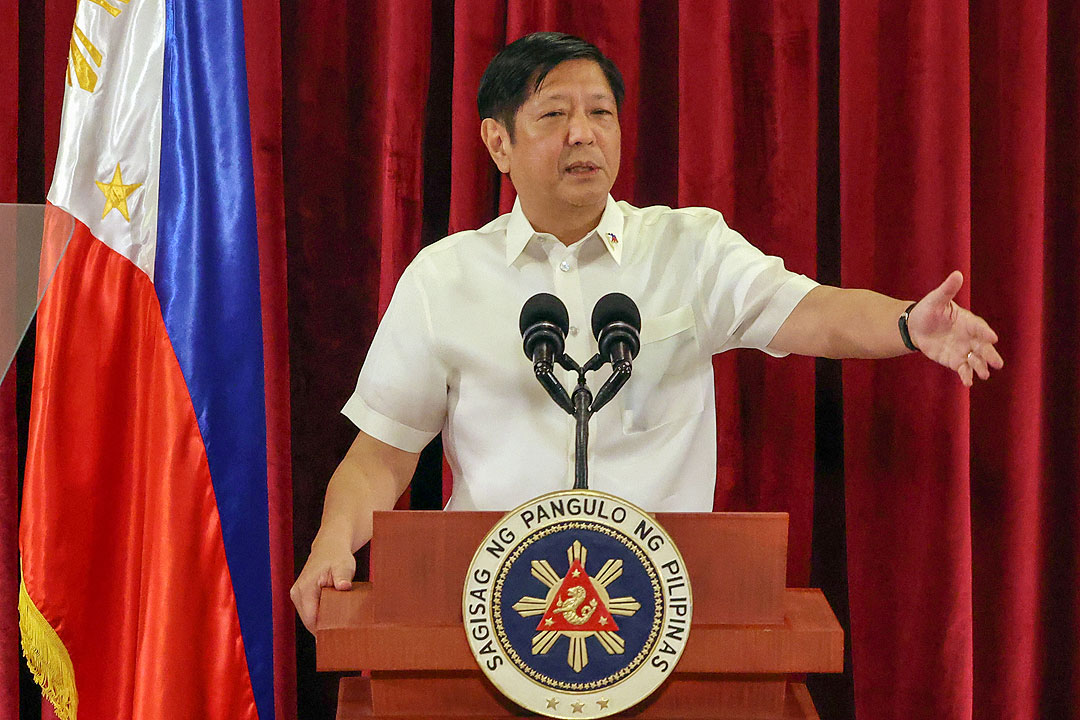Marcos told to push good governance in 2nd SONA

PRESIDENT Ferdinand R. Marcos, Jr. should push good governance reforms instead of focusing on his brand of unity in his second address to Congress, political analysts said at the weekend.
He should also commit himself to working with various sectors to achieve his plans amid a darkening global outlook caused by geopolitical tensions and rising inequality, they added.
The president did not mention political reforms needed to deepen democracy in his first address last year, Ateneo de Manila University School of Government Dean Philip Arnold “Randy” P. Tuaño said in a Facebook Messenger chat.
“Given that very few of the administration’s priorities have been passed or put into executive action, the President needs to convince Congress and the general public about the urgency to enact his priority measures, and to closely coordinate with the different stakeholders of society to ensure that these measures receive broad consensus,” he added.
Given his huge mandate, Mr. Marcos Jr. should convene summits and stakeholder discussions on different areas of governance, Mr. Tuaño said.
“There are many mechanisms at the national and local levels in which discussions and the development of the consensus of the administration’s priorities can be put into place.”
A recent Pulse Asia Research, Inc. poll showed that inflation, wage increase, jobs and poverty are the top concerns of most Filipinos.
“As usual, we expect him to lay down economic measures to address inflation, livelihood and other economic woes,” Jan Robert R. Go, who teaches political science at the University of the Philippines, said in a Messenger chat. “Recent surveys show these are top priority for the Filipino people.”
“But if the consideration is the sociopolitical climate, Marcos would most likely try to appease the political elites, particularly at the House of Representatives,” he added.
Mr. Go said he expects the President to reiterate the call for unity, his battlecry during his presidential campaign.
“The address (SONA) would also be Marcos’ platform to prove himself against his critics, and now to his allies,” he said, noting that despite his huge electoral mandate, “there remains challenges from within his coalition, if not cracks, that could spell problems for him in the next years.”
“This SONA could be an attempt to patch things up as they move towards the 2025 elections,” he added.
Arjan P. Aguirre, who teaches political science at the Ateneo, said the President should prioritize the freedom of information bill that seeks to institutionalize the “policy of making our government institutions open to public scrutiny.”
Mr. Marcos should also advocate for a political party development bill that will outlaw party switching and enforce stronger regulations on party finance, he said. He should likewise push changes to Omnibus Election Code of 1985, “which should be updated to allow us to modernize the conduct of elections in the Philippines.”
“It should be capable of adjusting itself to recent technological, cultural, economic and political changes in our society,” Mr. Aguirre said, adding that the state should also strengthen the Commission on Elections.
The President should also seek the passage of a measure decriminalizing libel “to prevent public officials who are using libel and cyber libel cases against their critics, especially in the media and among activists.”
The government should also address disinformation, strengthen civic and political education and harness people’s participation in governance, Mr. Tuaño said. — Kyle Aristophere T. Atienza



